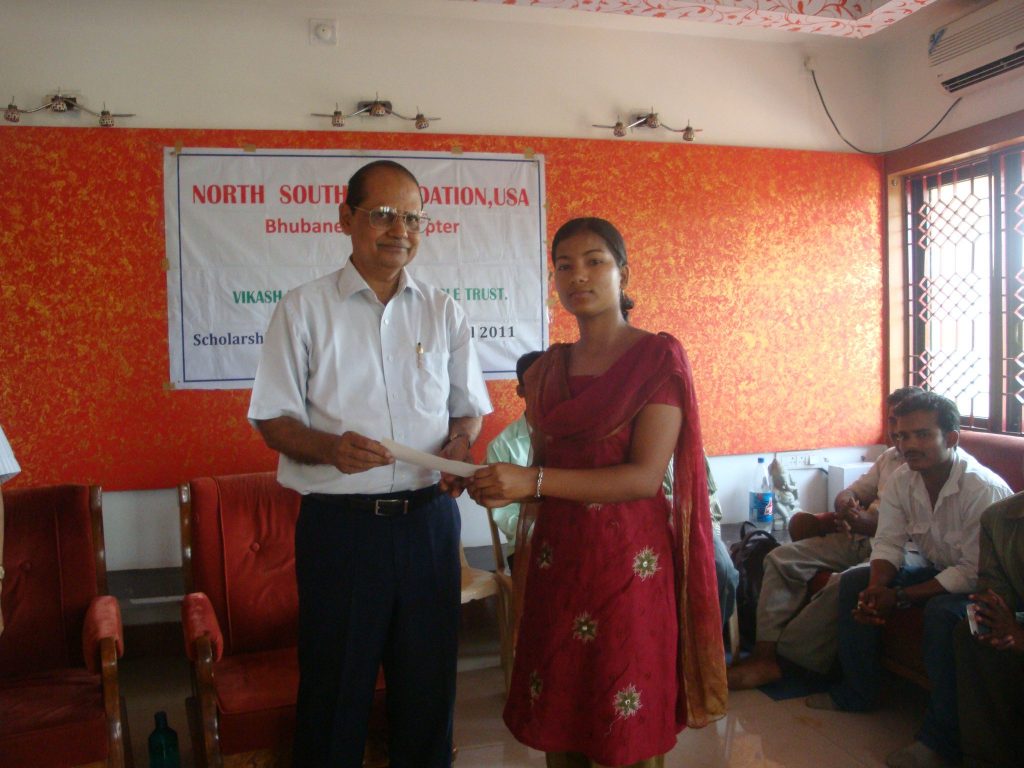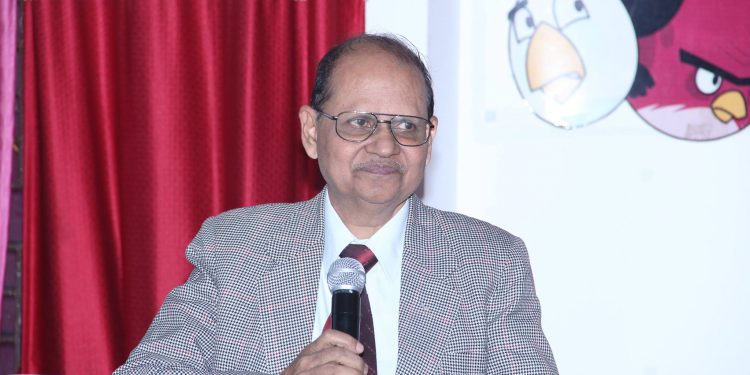“If the darkness of ignorance is to be dispelled, it has to be through education,” says Subhas Chandra Choudhury who has helped over 5,000 underprivileged students to achieve their educational goals.
“Many children are born talented, but they don’t get proper education due to poverty,” says Subhas. “Even though they manage to get some education, eventually they are compelled to abandon studies and take up odd jobs to support their families. We back these students by offering financial assistance.”
Subhas was born in a farming family in Kosal, Jagatsinghpur. He says, “There was a boy two years junior to me in my village. He was very good in mathematics, but he failed to do anything meaningful in life as his family was not well off. When I visited my village, I found him running a snacks shop. Then there was another student who featured among the top ten students in Class X. Though he got a seat in Ravenshaw in the higher secondary class, he had to discontinue his studies due to poverty. Though both these students had the aptitude, they did not do well in their lives because of poverty. I once happened to go through a book titled Plans for Retirement by SK Rustom. This book offered me an insight into how I should plan my post-retirement life. At that time, I was working with the Indian Revenue Service (IRS) as the Chief Commissioner of Customs. Before joining the IRS, I taught for five years in a private school run by Paradip Port Trust. My parents were into social service. Thus, social service came naturally to me. I set up the Bikash Charitable Educational Trust in 1992 to help financially backward students who are talented but short of resources.”

Quoting South African leader Nelson Mandela, Subhas says, “Education is the most powerful weapon which you can use to change the world.” Keeping this in mind, he started working for underprivileged students. The trust he formed helped him reach out to a larger number of students so that they would not have to discontinue their studies midway. As schools play a transformational role in shaping young minds, moulding character and imparting value-based education, members of the organisation first started visiting schools to shortlist poor but meritorious students in Class VIII and above. This process started in 1992, says Choudhury. Of late, however, the Trust is supporting only college students with good career prospects.
Subhas elaborates: “The first challenge is to locate needy and bright students. Next is to make these students maintain their focus till they complete their academics. Arrangement of funds is another challenge. The most important thing is to motivate our members into voluntarism as we don’t have that culture here.”
About the beneficiaries, Subhas says, “Be it students of BA, BCom, Engineering, MBA or Diploma, I try to help everyone but prefer the best ones. At the start of the academic sessions, we visit different colleges across the state. After identifying deserving students, we give bank cheques ranging from Rs 10,000 to Rs 40,000 depending on need. We stay in touch with the beneficiaries and monitor their progress.”
Recalling an interesting incident, Subhas says, “I went to IIM-Ahmedabad where my son was studying, to attend the convocation. I was delighted to meet Binay Agarwal whom we helped financially to pursue higher studies there. When he introduced his mother to me, she became very emotional. She said, ‘You have made my son’s life. Whatever he is today, it is because of you.’ Her words touched my heart.”
Apart from inculcating strong values, education should help to broaden the vision, sharpen the intellect, develop analytical skills, improve creativity, and develop an inclusive outlook, Subhas maintains.
Subhas has other achievements to his credit. He provides free coaching classes to students who are preparing for civil service examinations. These classes are held at his institution, but along with his teammates he also offers free coaching classes in the Vani Vihar campus four days a week.
Choudhury attributes his success to the Almighty. He says, “Every person has to do his work sincerely to bring positive changes in society. Besides, voluntarism should be promoted to make this world a better place to live in.”
A big thank you
Siba Prasad Panda, a senior chemical engineer of Indian Rare Earths Limited, says, “I came from a very poor background. My father was a salesman for whom meeting my study expenses was difficult. I got a seat in NIT Rourkela but it was difficult for me to arrange money to pay admission fees. I managed to get a student loan from a bank but that was not adequate. My admission in NIT became possible as Choudhury sir paid the fees. I will always remain indebted to him for his gesture. He also helped me in getting some financial aid from charitable organisations and because of him I got a scholarship from my college.”
Dr Susanta Meher, MBBS (SCB MCH Cuttack), says, “My father was a poor weaver. While doing my MBBS, I had a lot of financial issues. But Choudhury sir offered me a scholarship that helped me complete my medical degree.”
Isha Bihari says, “While studying for my degree, I came to know about the free coaching classes for civil service aspirants. I cleared the preliminary examinations of Odisha Administrative Services when I was in my first year of post-graduation. The training offered by Choudhury sir helped me crack the mains and I joined as an assistant tehsildar.”
Sibani Das had a similar tale to narrate. She belonged to a poor family and Subhas facilitated a scholarship that helped her study for an engineering degree. “I have landed a job in Infosys, thanks to Choudhury sir,” she says.
RASHMI REKHA DAS, OP






































